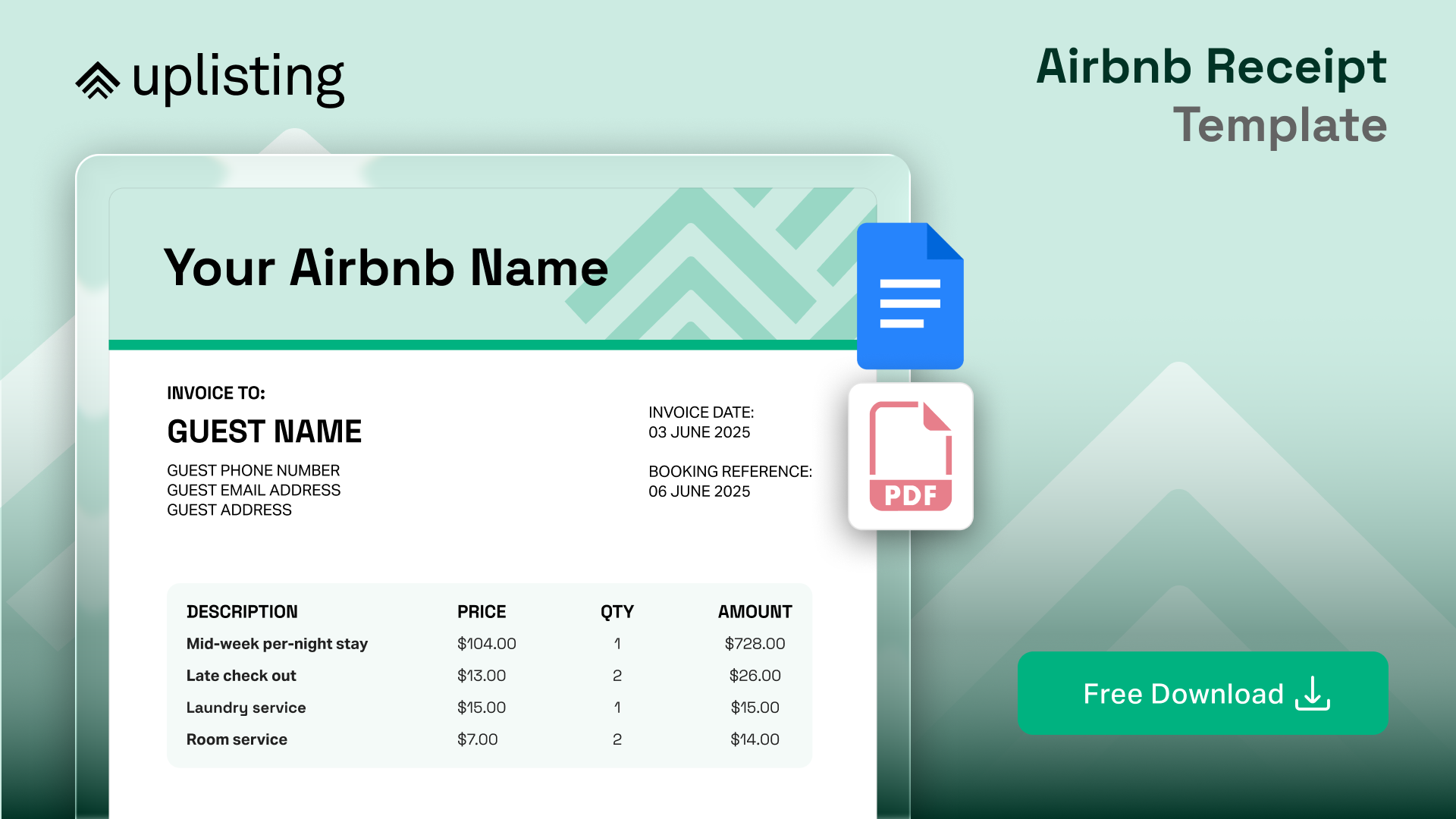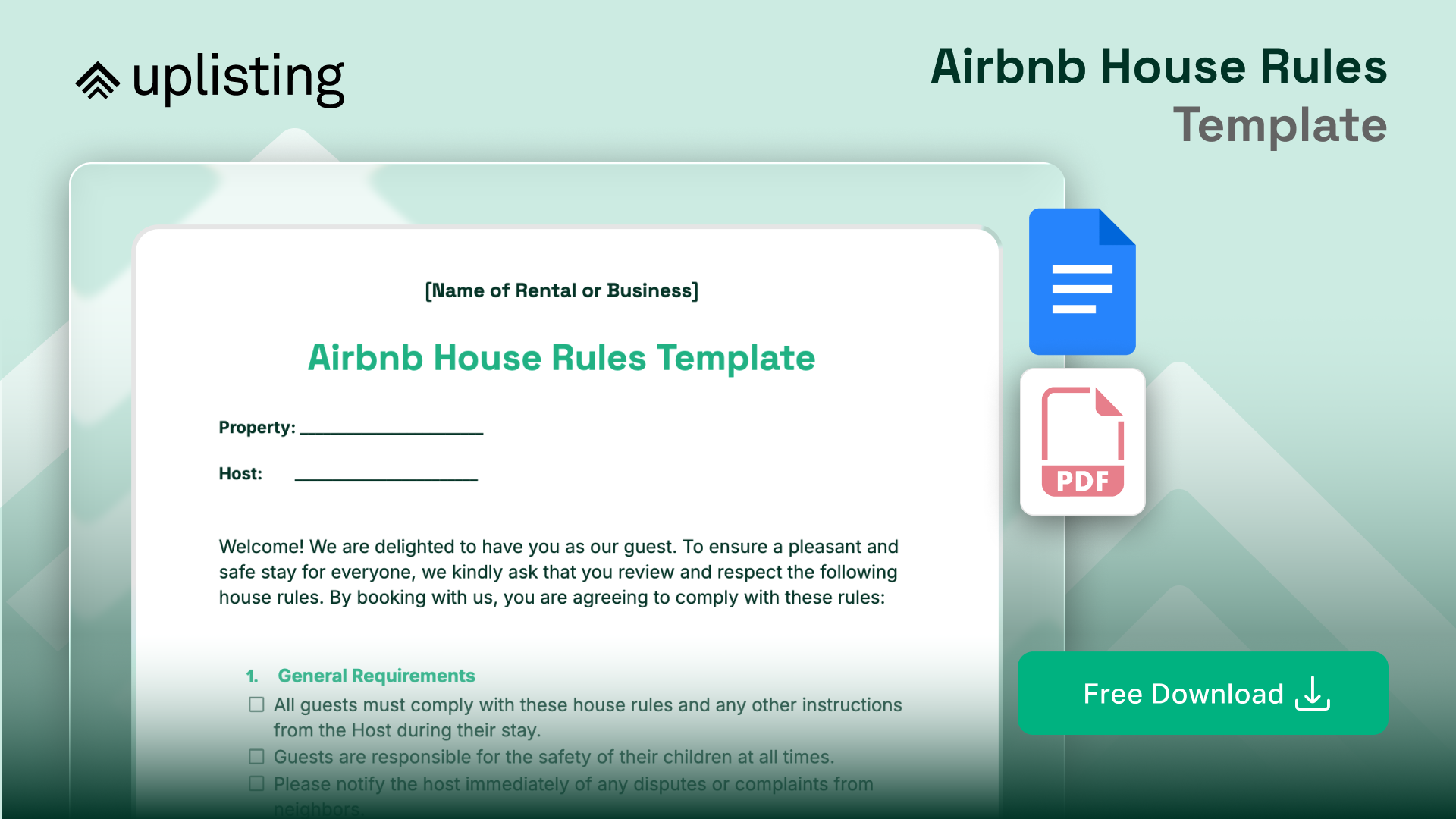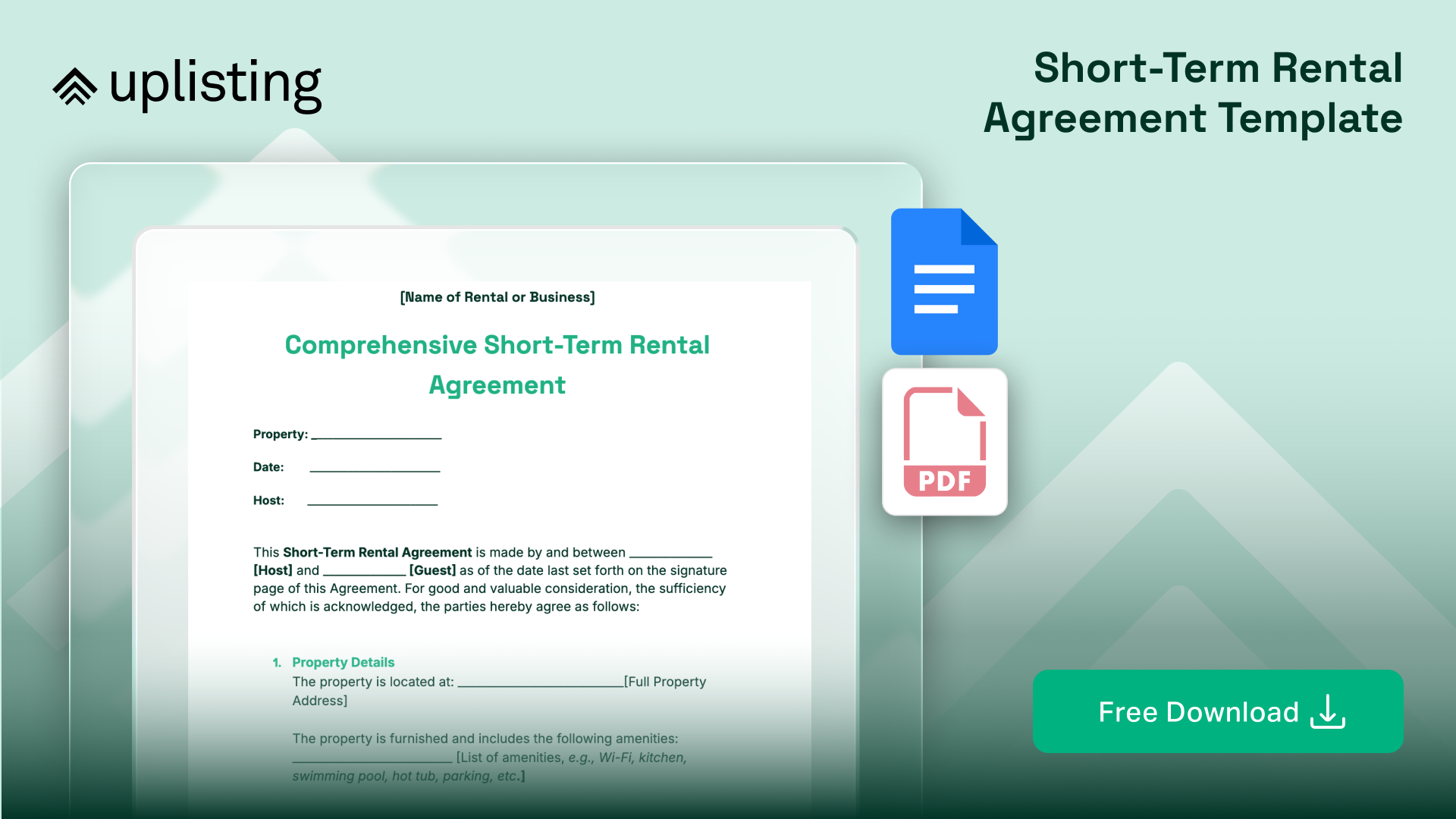Key Takeaways
Average earnings vary widely depending on location, occupancy and property type, so don’t expect a one-size-fits-all number
Cost factors (cleaning, maintenance, taxes, utilities) significantly reduce “take-home” income; gross revenue is only part of the story
Using smart pricing, high occupancy, differentiated listings and efficient operations helps bridge the gap between average and exceptional earnings
Ask ten Airbnb hosts how much they make, and you’ll probably get ten different answers. Some will tell you it’s an easy side hustle that pays for their mortgage; others will say it’s a full-time business that rivals a small hotel. The truth sits somewhere in between, shaped by dozens of variables: from location and occupancy rates to how professionally you run your operation.
As we move into 2026, Airbnb hosting isn’t just about putting a spare room online. It’s a serious source of income for millions of people around the world. According to recent market data, top-performing hosts earn tens of thousands per year, while new or part-time hosts often bring in a few hundred each month. The difference lies in experience, pricing strategy, and how efficiently each property is managed.
But here’s the challenge: most earnings estimates you’ll find online are vague or outdated. They don’t reflect how competitive today’s market has become, how much costs have risen, or how much tools like Uplisting can influence your bottom line by automating daily tasks and optimizing performance.
So, how much do Airbnb hosts really make? And how can you tell whether your potential earnings justify the work and upfront investment?
In this article, we’ll break down the numbers based on real-world data and hosting trends. You’ll learn what average hosts earn per month, how income varies by region and property type, and what separates profitable hosts from those barely breaking even. We’ll also look at the expenses that eat into revenue, cleaning, maintenance, platform fees, and how smart automation helps boost profit margins.
What the Data Actually Says About Airbnb Earnings
Okay okay, so what about the data? How much do Airbnb hosts really make out there in the wild? Let's take a look.
In the United States, hosts see an average of $4,300 in monthly revenue per property.
Urban studios, mountain cabins, and beachfront homes all contribute to this figure, so results swing wildly from one market to another. Some hosts in prime locations bring in far more, while others in quieter regions see less. For an up-to-date readout on regional benchmarks, check Localbird.
Shift focus to the United Kingdom, and the annual average sits around £22,694 annually per listing, based on Airbtics research.
London hosts report a median income near £34,000, with strong occupancy rates at 74% and a typical daily rate of £136. In Dorset, hosts average £31,000 in yearly revenue, working with a 64% occupancy rate and a slightly higher daily average. Not every property hits those marks, though. Many hosts prefer to use Airbnb as a side gig, earning closer to £6,000 a year. That extra income often helps cover rising bills, according to the Airbnb Newsroom, even if it's not enough to replace your full-time income.
Location, property type, and occupancy rates drive the biggest differences in results. City apartments with high guest demand and consistent management outperform rural or part-time setups by a wide margin. The gap between a top-performing urban flat and a countryside retreat can reach tens of thousands of pounds or dollars each year. To stay ahead, keep a close watch on local data, update rates often, and make sure every stay feels unique, and your bottom line will thank you.
Enjoy the confidence & focus you need to scale your vacation rental business
Book more while doing less
With a reliable VRM solution you can trust, Uplisting can help you grow your business without wasting time on double bookings, unhappy guests, upset clients and worrying what could go wrong next.
Key Variables That Drive Host Income
Anyone who’s ever tried to answer “how much do Airbnb hosts make” knows host income isn’t just luck, or a random payout handed over by the platform gods.
Income is shaped by a handful of factors you actually control, and a few you simply can’t. The difference between scraping by and building a profitable operation comes down to knowing which dials to turn, and when to turn them.
Location and local demand
Where a property sits makes or breaks earnings. Tourist hubs, business zones, and cities hosting big events pull in steady bookings, while remote cabins or slow-growth suburbs might have you waiting for inquiries. Seasonality shifts everything: ski lodges fill up in winter, beach condos in July, and houses near convention centers see spikes during trade shows. Local regulations can swing your numbers, too.
Booking metrics that matter
Focus on three numbers: occupancy rate, average length of stay, and lead time. High occupancy signals strong demand, but guests staying longer keeps turnover costs in check. Short bookings might look busy on paper, but extra cleanings and rapid turnovers eat into profits unless you have systems ready for the pace.
Pricing strategy and dynamic rates
Set-it-and-forget-it pricing leaves money behind. Hosts who use dynamic pricing tools adjust nightly rates in real time, responding to local events, competitor changes, and demand swings. Smart pricing attracts more bookings without cutting into value—even as platform fees and expenses fluctuate. Effective pricing means you earn reliable net income across channels, regardless of shifting commissions or guest fees.
Property type, size and amenities
Not every listing commands the same rates. Larger homes, unique stays, and properties loaded with amenities—hot tubs, pet-friendly policies, solid Wi-Fi—pull higher nightly rates and draw longer bookings. Urban studios might fill the calendar quickly but rarely hit the rates of a well-equipped house. Unique features help properties stand out and justify premium pricing.
Operational efficiency
Every pound or dollar saved on cleaning, maintenance, and guest turnover lands right back in your pocket. Streamlined systems for scheduling, restocking supplies, and turning over properties between guests drive up monthly profit. Reliable cleaners, simple check-in instructions, and fast guest support mean better reviews and smoother operations.
Taxes, platform fees and expenses
Gross income always shrinks once expenses stack up. Host service fees, utility bills, insurance premiums repairs, local taxes (even those dreaded surprise fixes) all chip away at take-home pay.
Savvy hosts plan for these costs, adjusting nightly rates or minimum stays to stay profitable. Platform fee structures can swing from 3% to 15% based on how you connect a listing, so keep an eye on changes; even small shifts here can mean a big difference in yearly income.
Knowing the right levers lets you spend less time guessing and more time running a sustainable, high-performing portfolio.
Estimating Your Own Airbnb Earnings
Pulling out your calculator and mapping out the real numbers gives you a straight answer to how much do Airbnb hosts make in your area.
The simplest starting point: take your average nightly rate, multiply by your expected occupancy rate, then multiply again by available days.
Suppose you earn $125 per night, aim for a 70% occupancy rate, and keep your property available 300 nights a year. Your projection comes to $125 × 0.7 × 300, or £26,250 in gross revenue. That headline number looks good, but the real story plays out after you pay your bills.
Expenses always trim the headline. Costs for cleaning, maintenance, utilities, platform fees, insurance, taxes, and repairs quietly chip away at your gross revenue. Say you pull in $26,250 and your total costs land at $7,500. Your actual earnings shrink to $18,750. Upfront costs, like furniture, and regular expenses, including linen service or higher summer utility bills, also need a spot in the budget.
Let’s put the spotlight on a real-world scenario to explain this further.
A one-bedroom city flat pulling $100 a night, running at 80% occupancy, and open for 330 nights could gross $26,400. If you spend $8,000 on expenses, you’re left with $18,400. Swap to a holiday home on the coast, open 200 nights a year at $220 per night with 60% occupancy; gross revenue sits at $26,400, but heavier cleaning and maintenance costs push total expenses to $10,000. Now you’re looking at $16,400 in net income. Both properties bring in similar gross revenue, but costs tell a different story.
That was just an example. When you're starting out projecting your income, it's always important to fine-tune your projections with local data.
Use Airbnb’s “What’s My Place Worth,” AirDNA’s Rentalizer, or your own booking history to compare rates and occupancy against nearby listings. If your property offers a hot tub, pet-friendly policy, or standout location, adjust your expectations up. Keep tracking your performance every few months and adjust your numbers as you go. Sharper data means fewer surprises and a clearer path to steady cash flow.

So automatic, you won’t know what to do with yourself
Put my rentals on autopilot
It’s simple to automate repetitive tasks with Uplisting's short-term rental software. You’ll save hours every week and eliminate human error. Go ahead — take some time off.
How High-Earning Hosts Push Past Averages
Top-performing hosts, however, consistently shatter those numbers and the secret lies in how they stack multiple winning elements together.
Here’s how the most successful hosts move beyond average earnings:
1. Prime location + high demand
The strongest earnings come from listings in markets where both occupancy and nightly rates are elevated. For example, in vacation hotspots or near major event centres, listings routinely hit six-figure annual revenue.
If you’re in a destination with strong tourist flow, proven rental history, or favourable regulations, you’ve already got one serious advantage.
2. Optimised pricing and calendar management
High-earning hosts treat their listing like a small hotel, not a spare bedroom. They use dynamic pricing tools, adjust for seasonality and local events, and minimise downtime between bookings. A listing that stays full even mid-week (rather than only on weekends) significantly boosts annual income.
That means revisiting your nightly rate, minimum stays, and cleaning turnaround — every week.
3. Guest experience & strong reviews
When hosts deliver a seamless, 5-star stay, they unlock better reviews, higher search placement, and stronger booking momentum. Listings with more than 100 reviews tend to earn significantly more than those just getting started.
High-earning hosts invest in detail: professional photos, fast guest responses, welcome touches, and even concierge-style amenities.
4. Cost control and automation
Earning more is only part of the story. Keeping more of it matters. Successful hosts tightly manage operating costs (cleaning, utilities, maintenance) and leverage systems to automate operations. The use of platforms like Uplisting means fewer manual tasks, fewer errors, and more consistent results across multiple listings. By fitting each listing into a streamlined workflow, earnings scale more reliably.
5. Portfolio mindset—not just one listing
Hosts who break through to high income levels treat Airbnb as a business, not just “rent a place when I can.” That often means managing multiple properties, duplicating successful setups, or reinvesting in higher-performing markets. Once you’ve optimized one listing, scaling becomes much easier because you’ve built a repeatable formula.
Why Many Hosts Overestimate Profit
t’s easy to assume that if your calendar is full, you’re making money — but many hosts quickly learn that high revenue doesn’t always mean high profit.
The biggest mistake is underestimating operating costs. Cleaning, utilities, restocking supplies, taxes, and maintenance can eat into margins faster than expected. Add Airbnb’s service fees and seasonal dips in demand, and that “extra income” can shrink quickly.
Another common pitfall is ignoring time costs. Managing guest messages, coordinating cleaners, and updating pricing manually can turn a side hustle into a full-time job. Without automation, the hours pile up and profitability drops.
Finally, new hosts often forget to budget for unexpected expenses — a broken appliance, property damage, or last-minute cancellations. Successful hosts plan for these, tracking their real net income, not just their payouts.
The most profitable hosts aren’t the ones charging the most per night; they’re the ones who manage costs, plan for downtime, and use smart systems like Uplisting to keep their operations lean and consistent.
You’re in great company
Sign up
Some of the largest short-term rental operators (with 250+ properties) rely on Uplisting's software to scale their businesses.
Positioning Yourself Between Average and Exceptional
Standing out in the short-term rental field doesn’t happen by accident.
Hosts who jump from average to exceptional usually combine reliable routines, sharp attention to numbers, and a knack for making guests feel welcome. Most hosts stick with the basics and hope for steady bookings, but real progress comes from taking action, over and over again.
Track the right numbers and act fast
Top hosts look at key numbers every week. Occupancy rate, average daily rate, guest ratings, and profit per booking all tell a clear story. When occupancy drops or reviews slide, take quick steps—switch up minimum stays, update photos, or fine-tune pricing ahead of weekends and local events. Hosts who act on data, rather than just watch it, set themselves up for better returns.
Invest where it counts
Small upgrades often bring big gains. Adding smart locks, blackout curtains, strong Wi-Fi, and supportive mattresses can turn a quick stay into a five-star review. Travel becomes easier for guests when you leave extra chargers, provide local guides, or set out a bottle of wine. These touches lift your nightly rate and encourage repeat bookings.
Strong marketing keeps your property in front of the right guests.
High-quality photos, a detailed listing description, and a little effort on social media or through local partnerships can boost your visibility. Keeping your listing updated, refreshing images, calling out new features, and responding fast to messages, makes a difference you can measure.
Scale at a sustainable pace
Adding more listings looks good on paper, but doubling your properties without reliable systems can cause chaos.
Bring on one property at a time and build solid routines for cleaning, restocking, and guest communication before expanding. Tight processes free up your schedule and leave room to spot the next growth opportunity.
Hosts who push past “just average” focus on data, keep guest comfort front and center, and grow only when their systems can handle it. Every listing becomes a new chance to improve, measure, and adjust—one move at a time.
The Difference Between Earning and Profiting: Uplisting
The numbers show that Airbnb hosting can be a rewarding way to earn extra income, or even build a full-fledged business, but success depends on more than just listing a property and waiting for bookings. The hosts who thrive understand their numbers, track their expenses, and build efficient systems that keep operations smooth and guests happy.
Profit comes from precision.
Knowing your market, setting the right price, and managing turnover efficiently all play a role in turning revenue into sustainable income. That’s why high-earning hosts treat Airbnb like a business, not a hobby; they plan for costs, protect their time, and invest in the tools that make growth possible.
If you want to move beyond averages and build consistent profitability, automation is your best ally. With Uplisting, you can streamline pricing, cleaning schedules, and guest communication, all from one place. The result is more time, fewer mistakes, and a stronger bottom line.
Ready to make your short-term rental business more profitable and efficient? Sign up for Uplisting today.
All-in-one Vacation Rental Software and Channel Management System
Get started in seconds by connecting Airbnb
Manage short-term rentals & bookings, message guests, take payment, and so much more. All in one easy-to-use platform (that never double-books).
FAQs About Airbnb Host Income
What’s a “good” annual income from one listing?
Local market, property type, and how much effort you put in shape your numbers. Many hosts aim for $18,000–$25,000 net each year for a well-managed city flat. Hosts in busy holiday destinations or prime city centers often see much higher returns.
Can full-time hosting be sustainable income?
Running short-term rentals as a main source of income is possible when you keep calendars full, watch costs closely, and adapt to changing guest needs. Treating property management like a business, tracking performance, investing in upgrades, and staying proactive, helps hosts avoid income swings and build consistency.
How much do taxes and fees cut into earnings?
Platform fees, cleaning, utilities, repairs, and local taxes usually claim 25–40% of your gross revenue. Sometimes, they take an even bigger bite, especially if you outsource every task. Always keep a buffer for repairs and surprises, and check current host service fee structures regularly so you’re not caught off guard.
Do more reviews meaningfully increase revenue?
A high volume of strong guest reviews pushes your listing higher in search, builds trust, and leads to more bookings. Positive feedback signals reliability and lets you charge higher nightly rates compared to similar listings with weaker reputations.
Does adding a listing double your earnings automatically?
Adding properties grows your revenue opportunity, but it also increases workload, expenses, and the chance for operational chaos. Most hosts only see real gains when they streamline cleaning, guest messaging, and pricing, otherwise, more listings just means more stress, not more income.
Still wondering how much do Airbnb hosts make? The answer depends on efficiency, guest care, and keeping your systems sharp from day one.

















.png)

